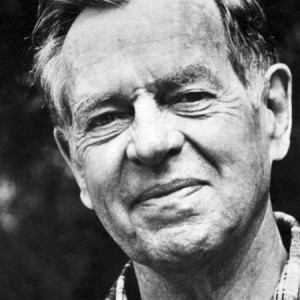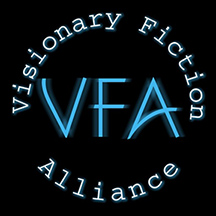This post was inspired by a recent Ground Zero Podcast from January 31st. It focused on transhumanism, a topic that frightens me as we’re mentally and spiritually not ready for this type of advancement. If you’re interested to listen to this podcast, click here.
During the course of the podcast, the host, Clyde Lewis, mentioned how bullies “create creative people by making them introverted.” He pondered over if we were to stop bullying, would that make creative people more rare? I’m not sure about that as not all creative people are or were bullied, but being bullied can certainly draw out your creativity.

INTROVERSION
As an introvert, I personally don’t see introversion as a result of bullying; it’s more of a character trait. We introverts tend to exist more in our heads. I recall when the bullying first started for me. It was mostly over my Greek nationality and that I sucked my thumb. I didn’t stop until I was twelve! I did this because I existed in my head. My thumb would enter my mouth while I was daydreaming, and I wasn’t aware of what I was consciously doing. So, I was an introvert before the bullying began.
I lost my fluency in Greek as a result of the racism I had to endure. For a time, I was ashamed of being Greek and stopped speaking the language. I was made to feel like there was something wrong with me. The neighborhood kids asked me if I was Catholic or Jewish, as if they were the only two religions in existence. When I responded “Greek Orthodox,” I was made to feel like the Greek Freak they called me. The bullying was so severe and unrelenting I developed complex PTSD symptoms. School became my prison from which I couldn’t escape.
It’s hard to describe what it feels like to have a flashback, but a present situation can trigger a past event, and it will literally feel like I’m reliving the experience. I’ll even feel the same emotions I felt on the day the memory was formed. Through the years, I’ve learned to cope with my flashbacks by practicing meditation. By confronting all my painful experiences, I’ve desensitized myself to many of my hurts, but there are so many; I still have flashbacks. They’re easy to deal with now as I don’t engage with them anymore; I know they’re nothing more than phantoms from the past and have nothing to do with my present life. By practicing mindfulness meditation, I’m able to distinguish them apart from my present-day experiences. When a flashback occurs, I allow myself to feel the feelings associated with the memory, but I don’t attach to the experience. I bathe myself in white light and forgive the person imprinted into my brain. It was awareness combined with forgiveness that gave me back control of my life.

THE PATH TO CREATIVITY
I’ve often mentioned to my family how my difficult childhood led to my creativity, which is why I never whine about my past. I even celebrate it because it made me take chances, and I became more resilient. I developed a strong drive to excel beyond the negative programming of my early years. It’s this drive that got me through one of the best colleges for Jazz at the time, all the way up to my publication of my first novel. In the early years, it had to do with having to prove to everyone that I was more than the Greek Freak I was viewed as, but now it’s more only proving it to myself.
“I do not try to dance better than anyone else. I only try to to dance better than myself.” Mikhail Baryshnikov
Reflecting over my life, I’ve had many exciting experiences and lived in different places like in Germany and New Zealand. My life literally became an adventure novel once I dropped out of high school. For me, the social stigma of dropping out was the key to my freedom. I was out of jail, and from that moment, I started to live. I also left with a wealth of inspiration, feelings and experiences to draw upon, both in my music, art and writing. Which leads me to my next point:
Being bullied turned me into an artist.
- More times spent alone, I learned to introspect about life and the Universe.
- I became sensitive to the hardships in life.
- I became sensitive to others who are having a difficult time
- I expressed myself through music and writing to release my loneliness and depression.
- I learned to appreciate life.
BEING BULLIED CAN LEAD TO COMPASSION
I recall having the opportunity to pick on a girl in high school. I had only to gaze upon her face to connect to her, and I immediately stopped myself. My short career as a bully ended after one comment. Upon reflection, I was able to see how bullies were born, first hand. I decided not to pass the pain to someone else. I also realized the school playground is a microcosm of children who never truly grow up. In fact, I’ve noticed adults are even more cliquish than children. This was a shocking revelation to me. The setting changes, but the pain is still passed along by those who don’t take time to introspect. Is it any wonder the world is a mess?
HOW BULLYING CAN HOLD YOU BACK
I can think of three instances when I was bullied as an adult. It doesn’t sound like a lot, but I find adult bullying more harmful in that it can make us give up our dreams if we don’t fight back.
I was preparing a big band chart for my jazz arranging class in my senior year. It was from an original of mine, which will be in my book, Beyond Omega’s Sunrise. I was up for three days straight getting it all down on very large manuscript paper. The lead sheets that I was to give to each player I notated in Encore,music software. The technology was fairly new, and I was eager to play around with it.
After I inputed all the parts into my computer, I played back the music using the midi instruments, and I was pleased with the job I had done. I was eager to show it to my teacher, who had it in his mind that singers had no business arranging music. That was the attitude I was forced to deal with since my first day in his class. (One of the pianists told me he made the comment while I was in the bathroom.) I printed out the lead sheets and presented them to the big band. When they began to play, I thought I was going to faint. I forgot to transpose the horn section! As a cacophony of horrors spilled out from the saxophones, trumpets and trombones, my teacher stood there and had them play through the whole thing. I managed to stay strong and not cry, but that was the most humiliating experience I ever went through. All the hard work I did on my song was never heard because I forgot to push a few buttons on my computer. I performed the song during my recital, but I was so traumatized, my performance lacked verve because by then, I didn’t want to sing jazz anymore.
Surprisingly, I wasn’t aware that I was bullied. When I recounted the experience to my husband, he brought it up, and I was shocked that I never realized it. Because of my teacher’s negative view on singers, I put a lot of stress on myself to prove him wrong that it ended up having the same effect.
I gave up jazz after I left school, and now I know it was because I let that one teacher make me forget all the great things that happened to me during my college experience. Soon after that, I started my own original music project. While I enjoyed it, my passion never reawakened to the same degree as it was while I was in college.

FROM SCREENWRITER TO NOVELIST
My next two bouts with a bullies came when I began writing screenplays. I got a scathing review by someone at Triggerstreet who went on to rip apart everything about my work. He told me I didn’t know the first thing about story structure and that I meandered too much. The criticism was harsh in that the reviewer went on to attack the idea of my story as well. I completely dismissed all the positive reviews that came before it and decided to give up writing. All this happened while my father-in-law was visiting. When he returned home, he sent me a quote by Jack Welch:
“Control your own destiny or someone else will.”
After I read those words, I snapped out of my self-pity and became angry with myself for allowing someone else to make me give up my dream of becoming a writer. I then introspected over why one comment affected me so strongly. After some searching, I realized my knowledge of the weaknesses in my writing were pulled to the surface by the critic. I then had the idea to get rid of those weaknesses, so I’d never be controlled like that again.
I took a screenwriting class with a very good teacher whose classes helped me hone in on story structure, dialogue and subtext. I still use these skills in my novel writing, and I would like to recommend the teacher now, but he’s also bully with some serious coping issues. He didn’t handle stress well at all. When I had a conference call with him, he mentioned he was on the phone all day, and I could hear he was on edge. He eventually snapped over something that he completely misunderstood and took out of context. I remained calm during his tirade against me, and he ended up calming down himself; however, after that conversation, I knew I had outgrown him. I didn’t give up on writing because I understood what happened had nothing to do with me. And I don’t think he’s a bad person. I detected a kind heart in him, but he just had trouble coping. In the end, it was his bullying that eventually led to my writing novels. I thank him for that.

BULLIES CAN CREATE RESILIENT PEOPLE
We can either allow bullies to defeat us, as my experience with my college professor. Contrarily, we can use them to catapult ourselves forward, like my screenwriting teacher who gave me a taste of Hollywood. I didn’t want all that stress, so I started writing novels. And I should add here there is a lot of stress involved with being an indie author, but that’s a different topic, which I may write about in the future. Regardless, I see it as positive stress in that it leads to personal satisfaction and growth. If a screenwriting gig comes out from my novels, that would be great. However, I’m not that desperate to tolerate abuse over it and will only work with people who are more in control over their emotions!
My teacher’s bullying forced a positive reaction out of me.
I could either give up, or push forward, and that’s what I did. To be a successful writer—and I don’t mean by making money or having fame. I define success by accomplishment, by bringing to life a piece of art, any art, that gives you the feeling that you’ve climbed the tallest mountain. There is no feeling on the world like this, and it makes me want to continue writing and exploring my artistic abilities.
This is my personal recipe for writing success:
- Learn the craft of writing through school, books, or a combination of both.
- Hone in on your weaknesses and make them your strengths.
- Read a lot, both fiction and non-fiction
- Be as non-judgemental as you can in life. It not only makes you more compassionate, but it also allows you to observe the mechanics of behavior in people. This will help you create the most realistic characters and situations.
- Appreciate being by yourself so you can tap into your inspiration.
- Don’t work out of the need of having to prove something to anyone else but yourself.
- Write the best story that you can, irrespective of what you feel others will think about it.
- Champion your work and honor your accomplishments. Writing a novel is difficult. The fact that you did it demonstrates a strong will. That is definitely something worthy of honor.
By doing all the above, after I typed the words the end in Unison, I knew I wrote a book that’s worthy of being read. I never felt that way before with anything else I wrote. With my first book, I was tethered to my desk in the attic. I didn’t enjoy the writing process at all. I always had this dark cloud looming over me, and after I finished writing, I told myself I’d never write another book again. Flash forward to today, and I love writing.
Celebrate your talent, and never let anyone else hold you back from it.
Love and light,
Eleni
 Within the current socio-political circus came the idea to write an article about the Hero’s Journey for the Visionary Fiction Alliance (VFA). Although the topic relates to myths and stories, we can also become heroes on our journeys. Each completed cycle can be an advancement in evolutionary growth that continues until our last breath. But sometimes we get stuck along the way.
Within the current socio-political circus came the idea to write an article about the Hero’s Journey for the Visionary Fiction Alliance (VFA). Although the topic relates to myths and stories, we can also become heroes on our journeys. Each completed cycle can be an advancement in evolutionary growth that continues until our last breath. But sometimes we get stuck along the way.















